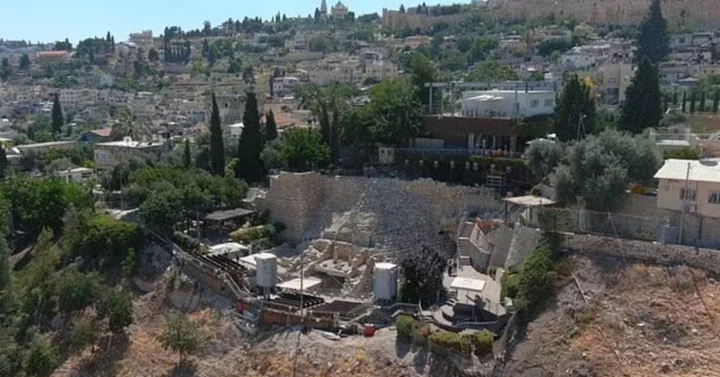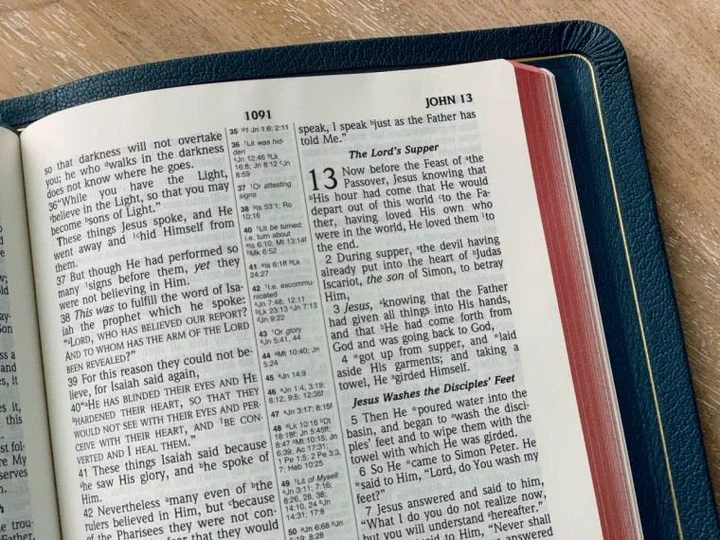
Experts claim that a significant archaeological discovery in Jerusalem could prove the historical accuracy of the Bible. Recent findings suggest that a section of ancient wall, long attributed to King Hezekiah, might validate biblical accounts. This discovery sparks debates among historians and scholars about the Bible's portrayal of historical events. To learn more about the details of this find, visit the full article.
New Discoveries Challenge Historical Beliefs
For years, scholars have believed that a significant stretch of wall in Jerusalem was constructed by King Hezekiah. However, a groundbreaking study has reshaped this view, revealing that the wall was actually built by his great-grandfather, King Uzziah. This discovery challenges long-standing assumptions and opens a new chapter in understanding the city's ancient history, particularly the timeline of its defenses.
Hezekiah's Legacy
Historically, the defensive wall within the City of David was attributed to King Hezekiah. It was believed that the wall was part of his efforts to protect Jerusalem from the Assyrian Empire, particularly after the fall of Israel. This belief has been foundational in understanding Jerusalem's military and strategic importance during the late 8th century BCE.
A Breakthrough in Research: Shifting Perspectives
After nearly a decade of research, archaeologists have uncovered evidence that suggests the wall was built much earlier, during the reign of King Uzziah. This revelation comes after the discovery of seismic activity and the re-evaluation of Jerusalem's historical timeline, forcing experts to reassess the city's defensive infrastructure and its role in the ancient world.
The Role of King Uzziah in Jerusalem's Defense
King Uzziah, believed to be the builder of the newly discovered wall, is credited with strengthening Jerusalem's defenses. According to biblical texts, Uzziah fortified the city in response to a massive earthquake. This aligns with new archaeological findings and adds credibility to the Old Testament narrative, which described Uzziah's military and architectural contributions.
Evidence from Chronicles
The Second Book of Chronicles in the Bible describes Uzziah's efforts to fortify Jerusalem, mentioning the construction of towers and walls. Archaeological findings that match these descriptions lend support to the historical accuracy of the Bible. The alignment of physical evidence with biblical text strengthens the argument for the authenticity of these ancient stories.
Advanced Carbon Dating: Proving the Wall's Age
To accurately date the wall, researchers employed carbon-14 dating techniques, which were crucial in determining its true age. The use of data from ancient European tree rings helped refine the results, overcoming challenges posed by atmospheric carbon fluctuations. These precise measurements confirm that the wall predates Hezekiah's reign, reinforcing the claims made by the archaeological team.
The Earthquake That Shaped History
The new findings also reveal that the wall was constructed after a major earthquake, an event mentioned in biblical texts. This natural disaster likely prompted King Uzziah to strengthen Jerusalem's defenses, validating the connection between the wall's construction and the seismic event described in the Bible.
Internal Growth vs. External Threats: A Shift in Understanding
Previously, scholars believed that Jerusalem's growth was primarily driven by external factors, such as refugees fleeing the Assyrian exile. However, the recent research suggests that internal growth, fueled by the Judean population, played a significant role in the city's development. This shift in perspective reshapes our understanding of Jerusalem's demographic and spatial evolution.
A New Perspective
The research not only sheds light on the wall's origins but also provides valuable insights into Jerusalem's urban development. The construction of fortifications and other structures during the reign of Uzziah indicates a period of growth and expansion, highlighting the city's strategic importance long before Hezekiah's reign.
Reflecting on Jerusalem's Legacy and Historical Significance
This discovery enhances our understanding of Jerusalem's history, particularly in the context of the Kingdom of Judah. By aligning archaeological evidence with biblical texts, the findings offer new insights into the resilience and cultural heritage of the kingdom. Jerusalem's role in ancient history is thus reaffirmed, highlighting its enduring significance in both historical and religious contexts.















Comments